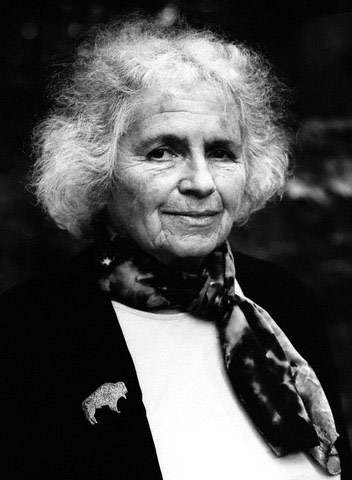A roundup of things consumed by our contributors.
Josh Spilker
I’ll keep it news-y for a second: Last week’s Bloomberg Businessweek “Election Issue” is probably the best single-issue of a magazine I’ve read since the very comprehensive New York mag 9/11 10th-anniversary edition from last year. They start out with a simple premise–how is America different from four years ago? These aren’t all essays, but instead they deliver information on everything from the cost of household goods (TVs down 57%!) to interviews with laid-off factory employees and a nice graph on China’s impact. The whole thing is so visually appealing–and exactly the sort of thing Newsweek coulda-shoulda-done–without ever really tilting a certain way politically. What? Just the facts? How revolutionary. It’s worth the $4.99 if it’s still around.
Misfit by Adam Braver is amazing. It’s the fictionalized story of Marilyn Monroe and it’s a winner. Also (barely) started the new Frank Hinton.
And, I finally wrapped up The Broom of the System by David Foster Wallace after a long late summer-turned-fall slog. It surprisingly came together quite well at the end; just not sure the wait to get there was worth it.
Nick Curley
Reading a few different election stories for an upcoming project. Our Gang, Philip Roth’s satire of Nixon from 1971 – has fun moments (and just as many corny ones), but lacks the great descriptive language in his later work. Still, it’s nice to confirm that political fiction has been ridiculous for ages now. Next up: a local election gets a Trinidad village all mixed up in V.S. Naipaul’s The Suffrage of Elvira.
Quickly went through Christopher Isherwood’s novella on screenwriting, Prater Violet. It has some clever plays on the narrator as author, or at least a writer named Christopher Isherwood. The Austrian director character Bergmann reads like a heavily sedated Schwarzenegger. Not until about halfway through does it find the keenly observed details of A Single Man, where each room was alive with eloquent biology, and insects crawling around the kitchen signal change in the air. “It was that hour of the night.” writes Isherwood while he parties post-wrap, “when the street lamps seemed to shine with a remote brilliance, like planets on which there is no life.” I’ve also never seen the visual and stylistic cues of fascism given the kind of expansive, nuanced thought that the character of film editor Lawrence Wright gets out of them. In another world this book is what Inglourious Basterds could have been – smart adults with mixed emotions about the war, and the people they run into at the movies.
Watched Red Desert for the first time: Antonioni’s first film in color is less visually striking than his black and white precursor L’Eclisse, but still a truly engaging mind-melter. The first half fills with the rusty brown shades of Italy’s “economic miracle”. The red desert in question looks burnt by some scorching meltdown or explosion. The second half has some gorgeous Ozu exteriors of shorelines, and Monica Vitti’s voiceover and monologue in the last twenty minutes contain some fantastic Molly Blooming.
Tobias Carroll
Robertson Davies’s The Merry Heart is a posthumous collection of his essays and lectures on literature and art. As someone who’s thoroughly enjoyed a lot of Davies’s fiction — (specifically, The Deptford Trilogy, What’s Bred in the Bone, and Murther and Walking Spirits — it’s interesting to learn more about the sense of philosophy and aesthetics behind these works. (Think classicism plus Jung plus Canada.) It’s also made me very curious to read Joseph Cowper Powys’s A Glastonbury Romance…
I’m also tempted to start a Tumblr called Great Beards of Literature, which will alternate photographs of Davies and Samuel R. Delaney. But that’s a gameplan for another day.
As someone who grew up in the mid-80s reading a lot of Marvel Comics, Sean Howe’s Marvel Comics: The Unknown Story seemed like a fine choice. And it’s an illuminating read, balancing the artistic process behind decades’ worth of superhero comics with assorted corporate machinations. It also finds in Stan Lee an unlikely tragic figure, a man who never really found the time to write the novel he’d always hoped to make. Appearances are made by everyone from Alan Resnais to HERBIE the robot; it’s fine work all around.
And I finally got around to reading Grace Paley’s Collected Stories, which is both a fantastic collection of short fiction and a terrific illustration of how one style can evolve subtly yet sharply. (Based on what I knew of her, I wouldn’t necessarily have pegged Paley as an influence on Gary Lutz; now, I’d wager money on it.)
Jason Diamond
I pulled out college books this week for research. It’s always strange to do that sort of thing. I have tons of books in my living space, but so many other great reads hidden away in various boxes and storage spaces. One particular book, Out of the Shadow by Russian-Jewish immigrant Rose Cohen, was especially important to me years ago, and I think it and the other books I pulled out will have to stay on my shelf from now on.
I also finished up Dan Deweese’s collection of stories, Disorder. I loved it and I’m happy to say we will be excerpting a part from it in the next week or so.
Also, new Trapped in the Closet. I’m so excited about that.
Follow Vol. 1 Brooklyn on Twitter, Facebook, Google + and our Tumblr.

